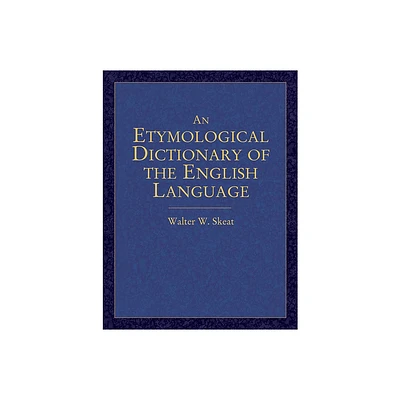Home
The Oxford Guide to Etymology
Loading Inventory...
Barnes and Noble
The Oxford Guide to Etymology
Current price: $38.99


Barnes and Noble
The Oxford Guide to Etymology
Current price: $38.99
Loading Inventory...
Size: OS
*Product Information may vary - to confirm product availability, pricing, and additional information please contact Barnes and Noble
This practical introduction to word history investigates every aspect of where words come from and how they change. Philip Durkin, chief etymologist of the
Oxford English Dictionary
, shows how different types of evidence can shed light on the myriad ways in which words change in form and meaning. He considers how such changes can be part of wider linguistic processes, or be influenced by a complex mixture of social and cultural factors. He illustrates every point with a wide range of fascinating examples.
Dr. Durkin investigates folk etymology and other changes which words undergo in everyday use. He shows how language families are established, how words in different languages can have a common ancester, and the ways in which the latter can be distinguished from words introduced through language contact. He examines the etymologies of the names of people and places. His focus is on English but he draws many examples from languages such as French, German, and Latin which cast light on the pre-histories of English words.
The Oxford Guide to Etymology
is reliable, readable, instructive, and enjoyable. Everyone interested in the history of words will value this account of an endlessly fascinating subject.
Oxford English Dictionary
, shows how different types of evidence can shed light on the myriad ways in which words change in form and meaning. He considers how such changes can be part of wider linguistic processes, or be influenced by a complex mixture of social and cultural factors. He illustrates every point with a wide range of fascinating examples.
Dr. Durkin investigates folk etymology and other changes which words undergo in everyday use. He shows how language families are established, how words in different languages can have a common ancester, and the ways in which the latter can be distinguished from words introduced through language contact. He examines the etymologies of the names of people and places. His focus is on English but he draws many examples from languages such as French, German, and Latin which cast light on the pre-histories of English words.
The Oxford Guide to Etymology
is reliable, readable, instructive, and enjoyable. Everyone interested in the history of words will value this account of an endlessly fascinating subject.


















